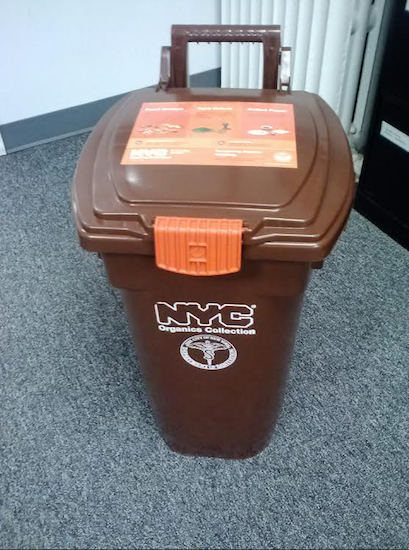Sanitation Dept. expands organic recycling in Bay Ridge

Residents are being asked to place organic recycling items in bins like this one for separate collection by the Department of Sanitation. Photo courtesy Josephine Beckmann
More Bay Ridge residents will be asked to collect their after-dinner table scraps as part of the Department of Sanitation’s organic recycling effort, according to a local official who said the agency is expanding a pilot program already underway in the neighborhood.
Josephine Beckmann, district manager of Community Board 10, told board members at an April 20 meeting that the city’s organic recycling program, which was introduced to certain portions of Bay Ridge last year, is now being expamded to cover the entire neighborhood.
The pilot program, which is voluntary, will now include single family homes and apartment buildings with under 10 units located between 62nd and 74th streets and from Shore Road to Seventh Avenue.
